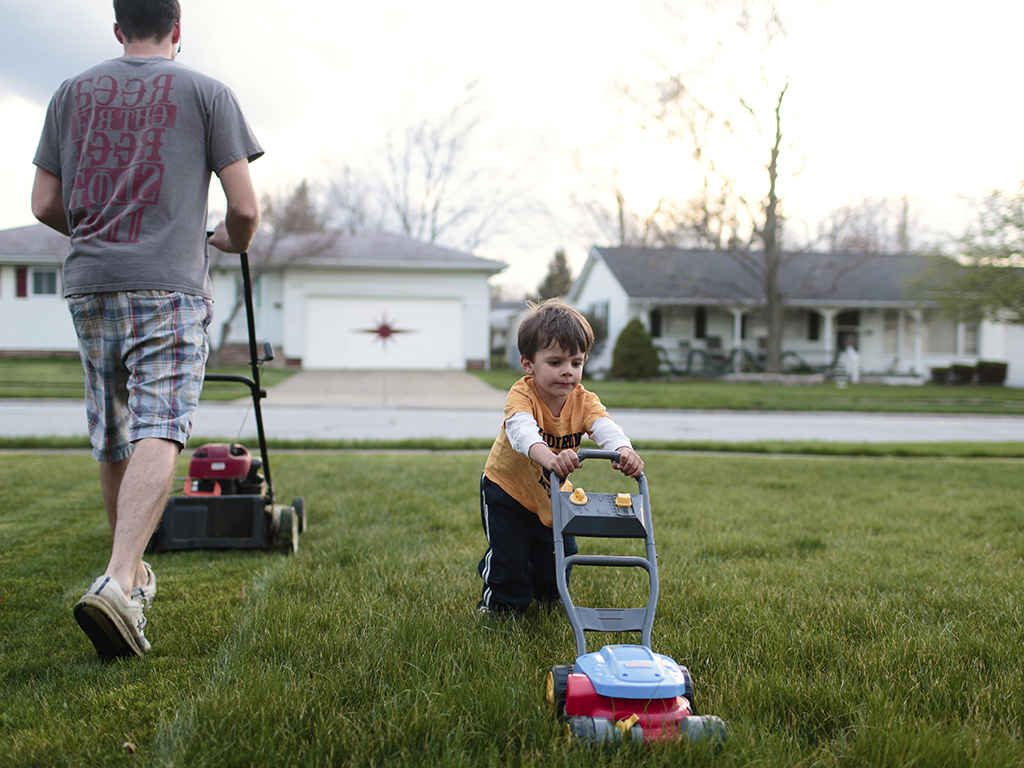We’ve heard plenty about helicopter parents — those mothers and fathers who hover over their children and swoop down to pull them from harm’s way, whether that threat is physical, social or emotional. But as those children grow and move further from the parental radar, a new type of parent is emerging.

WATCH BELOW: Is helicopter parenting a thing of the past?

Lawnmower parents are compared to the gardening tool because they cut down any obstacle that could stand in their child’s way. Notably, this is a parent who may no longer have the ability or access to remove their child from a problematic situation, therefore they do their “mowing” from a distance.
“At the college level, the physical presence required to hover may be limited, so we are now observing a different parenting style,” Karen Fancher, a professor at Duquesne University’s School of Pharmacy, wrote in the Pittsburgh Mom Blog. “These are the parents who rush ahead to intervene, saving the child from any potential inconvenience, problem or discomfort.”
In a post on We Are Teachers, an educator who asked to remain anonymous, wrote about an experience in which the parent of one of her high school-aged students came to the school to deliver a water bottle that his daughter had left at home.
“He was in a suit, clearly headed to work (or something work-like),” the teacher wrote. “’Remy kept texting me that she needed it. I texted back, Don’t they have water fountains at your school?, but I guess she just had to have it out of the bottle.’ He laughed, as if to say, Teenagers, am I right?”

Get daily National news
READ MORE: Dad bias — Why are fathers disproportionately praised for parenting their kids?
While the teacher empathized with the father and other lawnmower parents, acknowledging that they “come from a good place,” their concern is that these parents aren’t raising a generation of happy kids, but rather a generation “who panics or shuts down at the mere idea of failure.”
Something as innocuous as forgetting a water bottle and having to deal with the consequences of that provides a foundation for dealing with other, more serious, disappointments in life, experts argue.
“Growing up is about learning to continuously adapt to new and more challenging situations,” says Dr. Jillian Roberts, founder of Family Sparks and an associate professor at the University of Victoria.
LISTEN: Dr. Jillian Roberts joins Calgary Today to discuss ‘lawnmower parenting’
“When parents deprive their children of opportunities to practise these skills, their parenting is actually detrimental to their kids. In fact, what they are communicating is: ‘I do not think you are capable of handling this on your own.'”
She says the best thing to do is to allow kids to handle most day-to-day challenges on their own, like ordering their own food at a restaurant or packing their own suitcase. This is how they learn.
That said, she also understands a parent’s knee-jerk reaction to jump in to shield a child from threats that the child hasn’t previously faced.
“Parents have to guide their children past obstacles that they themselves likely never lived through — online bullying, social media pressures, stumbling onto pornography, etc. It is understandable that parents would want to pull their children more tightly into their embrace,” she says.
However, she says there are other ways to help them adapt. Namely, by giving them chores and responsibilities.
READ MORE: 11 ways to avoid messing up your child
“Whenever possible, give your children authentic and meaningful opportunities to make decisions. Little ones can choose what they wear; older ones can choose where you go on family vacations,” Roberts says. “Ease into the sharing of power by offering two to three choices.”
By doing this, you’re setting your child up with a sense of autonomy as well as teaching them that their decisions matter. And even if they fail at a task, allowing them to do so will help build strength and resilience.










Comments